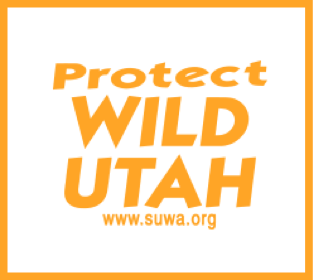|
SALT LAKE CITY (August 3, 2006) In a decision with west-wide implications, a federal district court has ruled that the Bureau of Land Management (BLM) violated federal environmental laws when it sold oil and gas leases on 16 parcels of wilderness-quality lands in southern Utah. In the ruling late yesterday, the court specifically rejected BLM’s practice to “lease now, think later,” stating that federal law required “that BLM postpone leasing in areas where the agency had significant new information about wilderness values that had not been adequately accounted for.” “This is a tremendously important decision,” said Stephen Bloch, staff attorney for the Southern Utah Wilderness Alliance, which filed the lawsuit with the Natural Resources Defense Council (NRDC) and The Wilderness Society. “Over the past three years, the BLM has been putting our most spectacular public lands on the chopping block for oil and gas leasing and development, without first considering the impacts that development would have to wilderness values. The court unequivocally told BLM that the agency’s practice was illegal.” The lawsuit challenged the first oil and gas lease sale following a controversial settlement in 2003 between the state of Utah and the Interior Department, commonly referred to as the “no more wilderness” settlement. That agreement allegedly gave BLM the right to sell oil and gas leases in some of Utah’s and the western United States’ most spectacular public lands. Utah holds these lease sales quarterly, and since the controversial 2003 decision, nearly every sale has included protected wilderness-quality land. Since 2003, the BLM has sold oil and gas leases on more than 100 separate parcels of land in Utah alone (totaling more than 125,000 acres) that the agency itself acknowledges are wilderness caliber. Bloch said every lease sale over the past three years in Utah is now thrown into question. “We don't need to sacrifice our wild and precious places to meet our energy needs,” said Sharon Buccino, NRDC land program director. “It’s common sense that the BLM should consider an area’s wilderness character before deciding whether to allow oil and gas drilling. Now the court has ruled that it’s the law.” The state of Utah holds approximately 1 percent of the United States’ proven oil and natural gas reserves, according to the U.S. Energy Information Administration. (See www.eia.doe.gov/) In addition, like most Western states, there is a surplus of Utah BLM lands that already are leased by industry for oil and gas development, but are not in production; as well as a surplus of approved drilling permits. At the end of fiscal year 2005, more than 3 million acres of BLM lands were under lease for oil and gas development, but not in production. Also, between 2001 and 2005, the Utah Division of Oil, Gas and Mining approved 5,077 permits to drill new oil and gas wells in Utah (a figure that includes BLM and Division managed lands). At the end of 2005, there were 2,044 approved drill permits from that five-year period that had not yet been drilled. (See 2006 Oil and Gas Fact Sheet) “This decision is reverberating loudly throughout the West because in Colorado and other states the BLM also has controversially sold off land that the agency itself had acknowledged was wilderness quality,” said Suzanne Jones, who directs The Wilderness Society’s Four Corners Office. “This is a clear message that BLM needs to rein-in its illegal leasing practices.” The plaintiffs said the decision will have no affect on the thousands of acres of lands leased without wilderness quality and the permits issued for those lands without wilderness quality.
|
|
|

 Southern Utah Wilderness Alliance
Southern Utah Wilderness Alliance
Protecting Utah's Redrock Country
